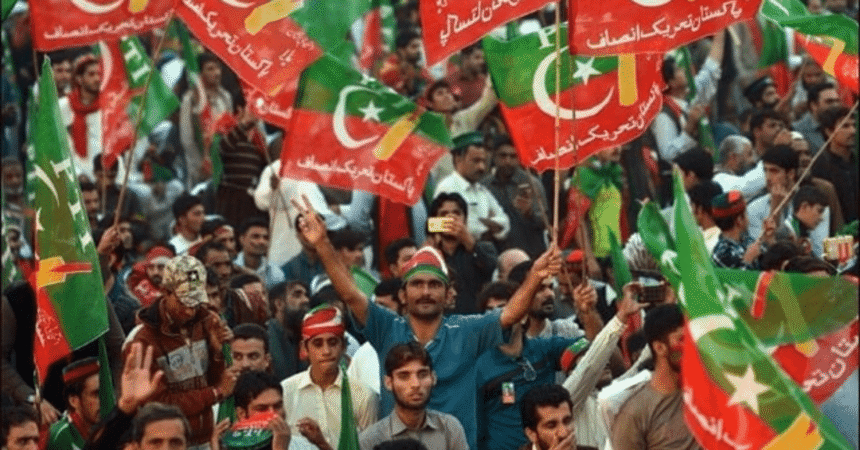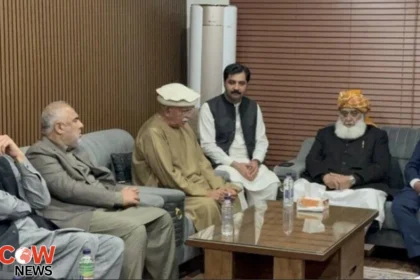The Pakistan Tehreek-e-Insaf (PTI) party has officially declared its intent to stage protests in three major cities of Punjab—Mianwali, Faisalabad, and Multan—on October 2, 2023. This announcement has stirred significant anticipation and mobilization among party supporters, reflecting a growing sense of urgency within the political landscape of Pakistan. The protests are framed around key issues that have resonated deeply with the populace, including judicial independence, the release of PTI’s founder, and the rampant inflation currently afflicting the nation.
The Context of the Protests
The backdrop to these protests is multifaceted. The PTI has been embroiled in a turbulent political climate, particularly following the removal of its leader, Imran Khan, from power. The party has faced numerous challenges, including legal battles, public discontent, and internal strife. As inflation continues to rise, affecting the daily lives of ordinary citizens, the PTI seeks to capitalize on this discontent to rally support and reclaim its position in the political arena.
Judicial Independence and the Call for Action
During a recent press conference, PTI leader Sheikh Waqas Akram emphasized the importance of the protests as a means to support judicial independence. He stated, “The protests will be in support of judicial independence, the release of our party’s founder, and against rising inflation.” This statement underscores the party’s dual focus on both legal reforms and economic grievances.
Judicial independence has been a contentious issue in Pakistan, with various political parties accusing one another of manipulating the judiciary for political gain. For the PTI, advocating for a fair and impartial judicial system is crucial not only for their party’s legitimacy but also for the overall health of democracy in Pakistan. By framing the protests around this issue, the PTI aims to attract a wide array of supporters, including those who may not be directly aligned with the party but are concerned about the integrity of the judicial system.
Mobilizing the Base
Akram’s call to action was explicit: “Every worker in Mianwali, Faisalabad, and Multan must pour onto the streets and actively participate in the protest.” This rallying cry reflects a strategic effort to mobilize the party’s grassroots supporters, many of whom feel disenfranchised and disillusioned with the current state of governance.
The PTI has a substantial support base in Punjab, the most populous province in Pakistan. By concentrating their efforts in key cities, the party hopes to demonstrate its organizational strength and ability to mobilize large crowds. The symbolism of large protests cannot be understated; they serve as a visual representation of popular sentiment and can significantly impact public perception and media coverage.
Acknowledging Past Support
In his remarks, Sheikh Waqas Akram also expressed gratitude towards PTI supporters who participated in recent protests, particularly in Rawalpindi on September 28. He stated, “I wholeheartedly appreciate the public for their support during the protest in Rawalpindi. I extend my thanks to all stakeholders, including MPAs and MNAs, who came to Rawalpindi and played their part.” This acknowledgment serves not only as a morale booster for the supporters but also as a reminder of the collective struggle the party faces.
Such statements are essential for maintaining the enthusiasm and commitment of the party’s base. By recognizing the efforts of party members and leaders, Akram reinforces the idea that collective action is both necessary and impactful. It builds a sense of community among supporters, emphasizing that they are part of a larger movement seeking justice and accountability.
Economic Struggles and Rising Inflation
The ongoing economic challenges facing Pakistan cannot be overlooked, as they play a crucial role in the PTI’s protest agenda. Recently, PTI leader Ali Muhammad Khan lamented the situation, describing the country as experiencing “ballooning” inflation. He highlighted the hardships faced by citizens, saying, “The country is witnessing hardships. Even look at the situation in Balochistan. What about the law and order now? The country was witnessing peace before.”
Inflation has become a pressing concern for many Pakistanis, with rising prices affecting essential goods and services. This economic strain has created an environment ripe for political mobilization, as citizens search for solutions and accountability from their leaders. The PTI aims to position itself as the voice of the people, advocating for policies that address inflation and improve economic stability.
Khan’s remarks reflect a broader sentiment among the populace, particularly in a context where many families struggle to make ends meet. The PTI’s focus on economic issues aims to resonate with everyday citizens, who may be disillusioned with the current government’s handling of the economy. By addressing these concerns, the PTI hopes to not only mobilize support but also propose practical solutions that appeal to the public.
The Role of Media and Public Perception
The role of media coverage in shaping public perception of the protests cannot be underestimated. In a digitally connected world, social media plays a crucial role in amplifying political messages and mobilizing support. The PTI has been adept at using social media platforms to engage with supporters, disseminate information, and promote its agenda.
As the date of the protests approaches, the PTI is likely to ramp up its media efforts to generate buzz and attract attention. Strategic use of hashtags, videos, and live-streaming of events can enhance the visibility of the protests, potentially drawing in undecided citizens who may be inspired to join the movement.
Furthermore, media coverage can influence the narrative surrounding the protests. Positive coverage can bolster the PTI’s position, while negative portrayals may hinder their efforts. Thus, the party’s ability to manage its public image during this time is paramount.
Challenges Ahead
While the PTI’s call to action is clear, the party faces several challenges in the lead-up to the protests. Internal divisions, legal battles, and a fragmented opposition landscape may impact its ability to mobilize effectively. The party must navigate these challenges while maintaining unity and focus among its supporters.
Moreover, the government’s response to the protests could significantly impact their outcome. Past protests have sometimes been met with resistance from law enforcement, raising concerns about the safety and rights of demonstrators. The PTI must prepare for potential confrontations while ensuring that its protests remain peaceful and focused on their objectives.
Engaging with the Public
As the protests draw nearer, the PTI will likely engage in extensive outreach efforts to ensure that citizens understand the issues at stake. Town hall meetings, door-to-door campaigns, and community gatherings may be utilized to educate the public and mobilize support. Engaging directly with the community allows the party to tailor its messaging to local concerns, fostering a sense of connection and relevance.
Additionally, the PTI may seek endorsements from influential community leaders or organizations to bolster its credibility and outreach efforts. Building coalitions with civil society groups, trade unions, and other political entities can amplify the party’s message and broaden its base of support.
The Importance of Unity
One of the central themes of the PTI’s upcoming protests is unity among its supporters. The party’s leadership has emphasized the need for solidarity, particularly in light of the challenges they face. Sheikh Waqas Akram’s statements reflect this sentiment, as he calls upon all PTI members to participate actively in the demonstrations.
Fostering a sense of unity not only strengthens the party’s internal cohesion but also enhances its public image. A united front can create a powerful visual narrative, showcasing the strength of the PTI’s movement and its commitment to the issues at hand.
The Broader Political Landscape
The PTI’s planned protests occur within a broader political context that includes ongoing tensions among various political factions in Pakistan. The opposition parties, including the Pakistan Muslim League-Nawaz (PML-N) and the Pakistan Peoples Party (PPP), are likely to respond to the PTI’s mobilization efforts. Their reactions could range from counter-protests to political rhetoric aimed at undermining the PTI’s narrative.
Understanding the dynamics of the opposition is crucial for the PTI as it navigates this political landscape. Anticipating potential challenges and counter-narratives can help the party craft effective responses and maintain its position as a leading voice in Pakistani politics.
The Role of Grassroots Movements
The upcoming protests serve as a reminder of the power of grassroots movements in shaping political discourse. As citizens mobilize around shared grievances, the PTI taps into a growing sentiment for change and accountability. The protests represent an opportunity for the public to express its frustrations and demand a more responsive government.
Grassroots activism has the potential to influence policy decisions and hold leaders accountable. By creating a platform for public expression, the PTI can amplify the voices of ordinary citizens and advocate for meaningful change.
A Critical Moment for PTI
The PTI’s announcement of protests in Punjab on October 2 marks a critical moment in the party’s ongoing struggle to regain influence and address pressing societal issues. With a focus on judicial independence, economic challenges, and the mobilization of supporters, the party aims to create a significant impact in the political landscape.
As the date approaches, the PTI will need to navigate challenges, engage with the public, and maintain unity among its supporters. The outcome of these protests could have far-reaching implications for the party and the political future of Pakistan.
In a time of uncertainty and unrest, the PTI seeks to position itself as a champion of the people, advocating for justice and accountability. The upcoming protests may serve as a turning point in the party’s trajectory, reflecting the collective aspirations of its supporters and the broader Pakistani populace.
#PTI #Protests #Punjab #JudicialIndependence #Inflation #PoliticalActivism #PakistanPolitics







